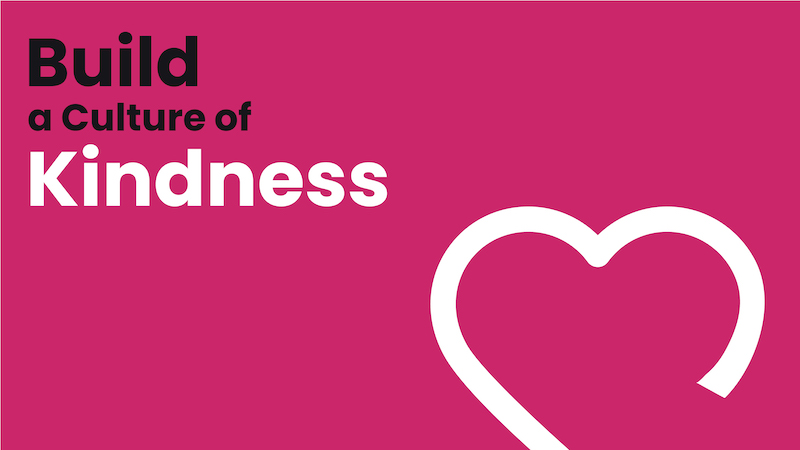I can be impatient.
Not so much in my interactions with people (I hope!), but more so when it comes to building a business.
We have 31 clients and most of them are on recurring monthly agreements. We are profitable. We are past the point where we’re working with clients who aren’t a good fit. I know that I should celebrate this achievement, but I’m still so ready for the next steps.
I can’t wait for Formada to be at a place where we can hire more talent. I’m confident that we’ve built something really special. We have partnerships with many smart people who add significant value to our small team. I want to bring them on as full-time employees. Bootstrapping a startup takes a level of patience that doesn’t come naturally to me.
I’m constantly reading about startup journeys and taking notes on what the “top” and “hottest” startups have done to fast track their success.
Yesterday I watched Top Startups of 2019: The 50 Hottest U.S. Companies to Work For Now while killing some time on a flight.
I was particularly impressed with the interview with Steph Korey, Co-founder, and CEO of the luxury travel brand, Away. Korey launched Away in 2016 and the most recent valuation came in at $1.4 billion.
She spoke mostly of the importance of building a strong company culture from the very beginning and revealed that her first executive hire was a Chief People Officer. This role is responsible for ensuring that the company culture is healthy and all employees feel represented, safe, and respected at work.
She instituted a process where the company posts “Name Your Job” postings, encouraging potential talent to create their own job descriptions and then apply for them. She says that this allows Away to come into contact with the most innovative job candidates and that the company has created and hired for numerous positions using this model.
Korey says that there is virtually no hierarchy at Away and that those closest to an issue are able to make important decisions because they are the most familiar with the topic.
I took mental notes as she spoke because this is the type of culture that I want to build. According to the interview, she built a billion-dollar company with a thriving culture in less than 5 years. Reading stories like these makes me feel both inspired and so far behind.
Today I read that Korey is stepping down from her position as Away’s CEO due to what some of her employees described as a toxic company culture. Apparently, the work environment that Away portrayed publically was not in alignment with what the employees actually experienced on a day-to-day basis.
According to the article, employees were encouraged to use the messaging tool, Slack, for all interoffice communication. Email was not to be used and direct messaging was frowned upon. This meant that all office communication was public and everyone could see everyone’s messages.
Ms. Korey would publicly berate employees for mistakes. Her Slack messages read like this: “If whoever is doing these luggage tags is brain dead enough to package up and send a tag that clearly has incomplete letters it seems extremely unlikely to me that a retraining on SOPS is going to be a sufficient next step for us to ensure that 100% of customers are getting perfect luggage tags.”
Employees were discouraged or forbidden from taking time off. They were asked to work exceptionally long hours without overtime. They were reprimanded for not immediately responding to messages even if those messages came in late at night.
If I were to guess, I’d say that Korey’s super-fast path to success was partially due to her intelligence and drive, partially due to hiring a stellar team, and partially due to luck. I think the speed at which she achieved success contributed to her being overly confident, narcissistic, and egotistical.
I think she stopped believing in the value of her team and started to view her way as superior. I think she viewed Away’s success as her personal success and not something that was only achievable because of the devotion, skill, and passion of the team that she employed. I think that she lacked the self-awareness to see herself the way that her team saw her—and this was her ultimate downfall.
I think we see other examples of this in WeWork, Theranos, and Uber. Fast and extreme financial success comes at a cost to many teams and leaders. At times, dedicated employees are viewed as what is standing in the way of more growth rather than the reason that success was possible in the first place.
At Formada, we haven’t even come close to scratching the surface of what these startups have achieved. So I realize that it’s easy for me to pick apart the very public missteps taken by these super successful CEOs. But I want to learn from what they did wrong because it would be stupid of me to assume that I wouldn’t be vulnerable to the same behavior.
We are working to create a culture that embraces the values that Away publicly proclaimed, but ultimately was unable to embody. I want to prove that it’s possible to build an incredibly successful tech company that not only has kindness as a core value but exemplifies it on a daily basis.

